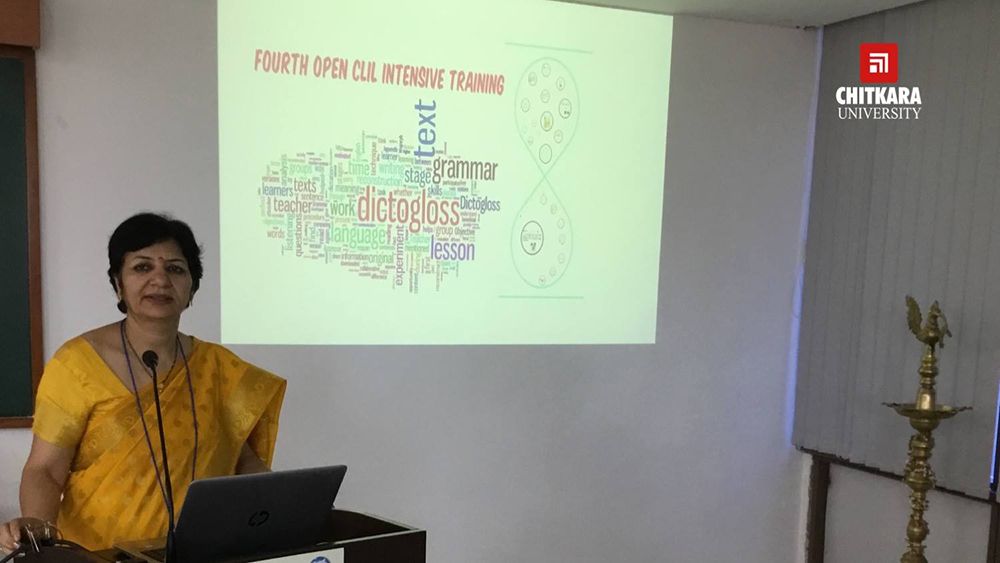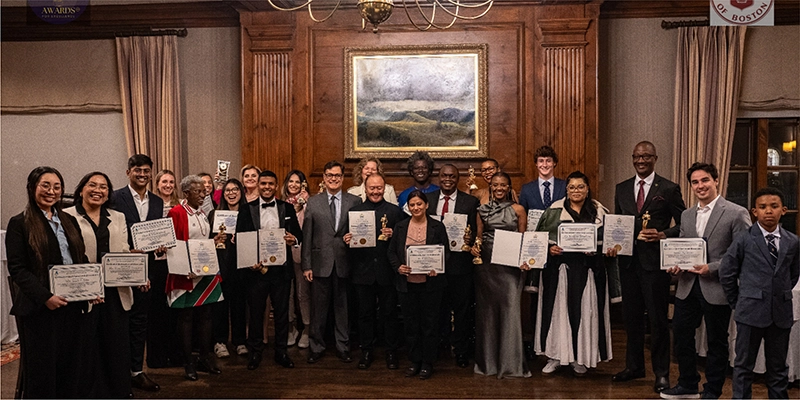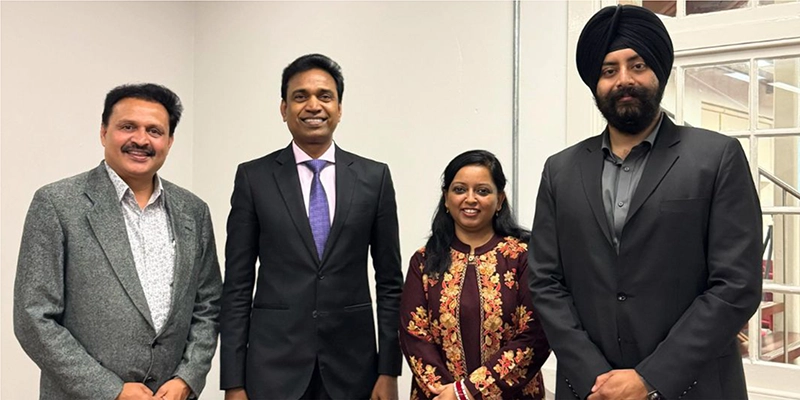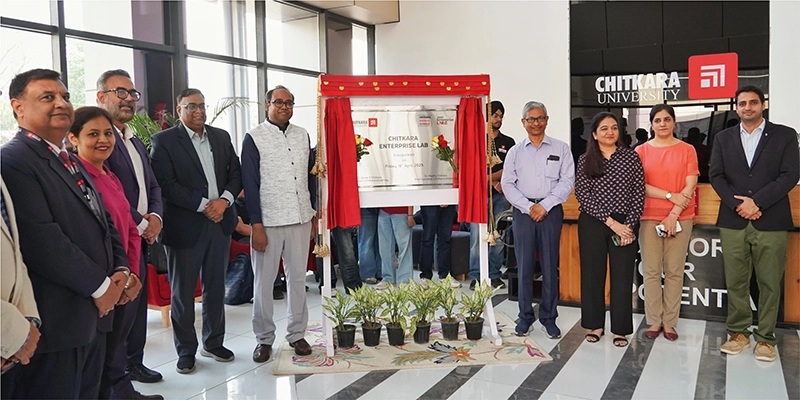Chitkara College of Education Profs steer 2-day session at CLIL Intensive Training Workshop
Dr. Sangeeta Pant, Dean and Dr. Parul Sood, Assistant Professor Chitkara College of Education, Chitkara University, steered two-day session at the 4th Open CLIL Intensive Training Workshop held at Manipal Academy of Higher Education, from December 10–14, 2018. The five-day event was targeted mainly at school teachers to introduce CLIL methodology, as a concept and a practice.
The workshop was inaugurated by Prof Neeta Inamdar, CLIL@India coordinator and Head of Dept of European Studies, Manipal Academy of Higher Education, Mr Sheshashayana K., Deputy Director of Public Instruction (DDPI) Udupi and Ms Uma P., Block Education Officer in- charge, Brahmavara, at FAIMER hall, Manipal Academy of Higher Education. The workshop saw the attendance of 35 teachers teaching at various levels in schools of all categories- private, aided or government.
Dr. Sangeeta Pant’s session focused on strategies that promote comprehension, with a focus on a system that works with a three-part framework, before reading, during reading and after reading. The second part led by Dr. Parul Sood was structured to the specific methods to enhance comprehension in the class with the students. Both of them included activities that allowed a balanced skill-knowledge learning environment for the participants.
Further, Dr. Sangeeta Pant also gave an elaborate introduction to Dictogloss, a dictation-based production activity that enables both the student and teacher to partake in the learning process, with a balanced inclusion of aspects of listening, speaking, reading and writing.
The workshops aimed to create an environment that was a merging point between method and praxis, to ensure that the participants took back practical experience with them along with the conceptual basis on which CLIL is constructed. Keeping in with the spirit of CLIL, the sessions were conducted in various languages, including English, Hindi and Kannada, all being the intervention languages of CLIL@India, envisioning what a CLIL atmosphere would look like.
The participating teachers received the workshop well. The workshop also gave the Manipal team an opportunity to open its CLIL lab for use by the participants as and when required by them.














